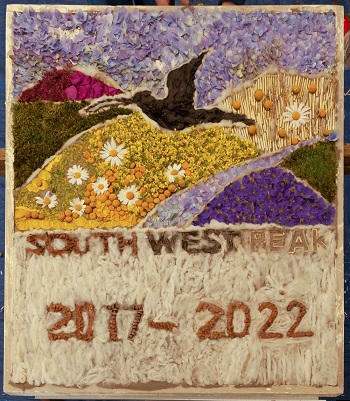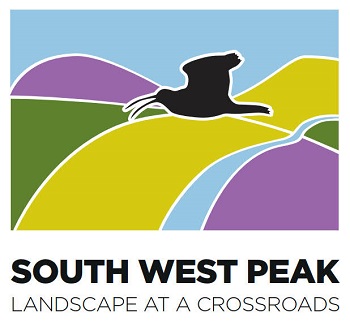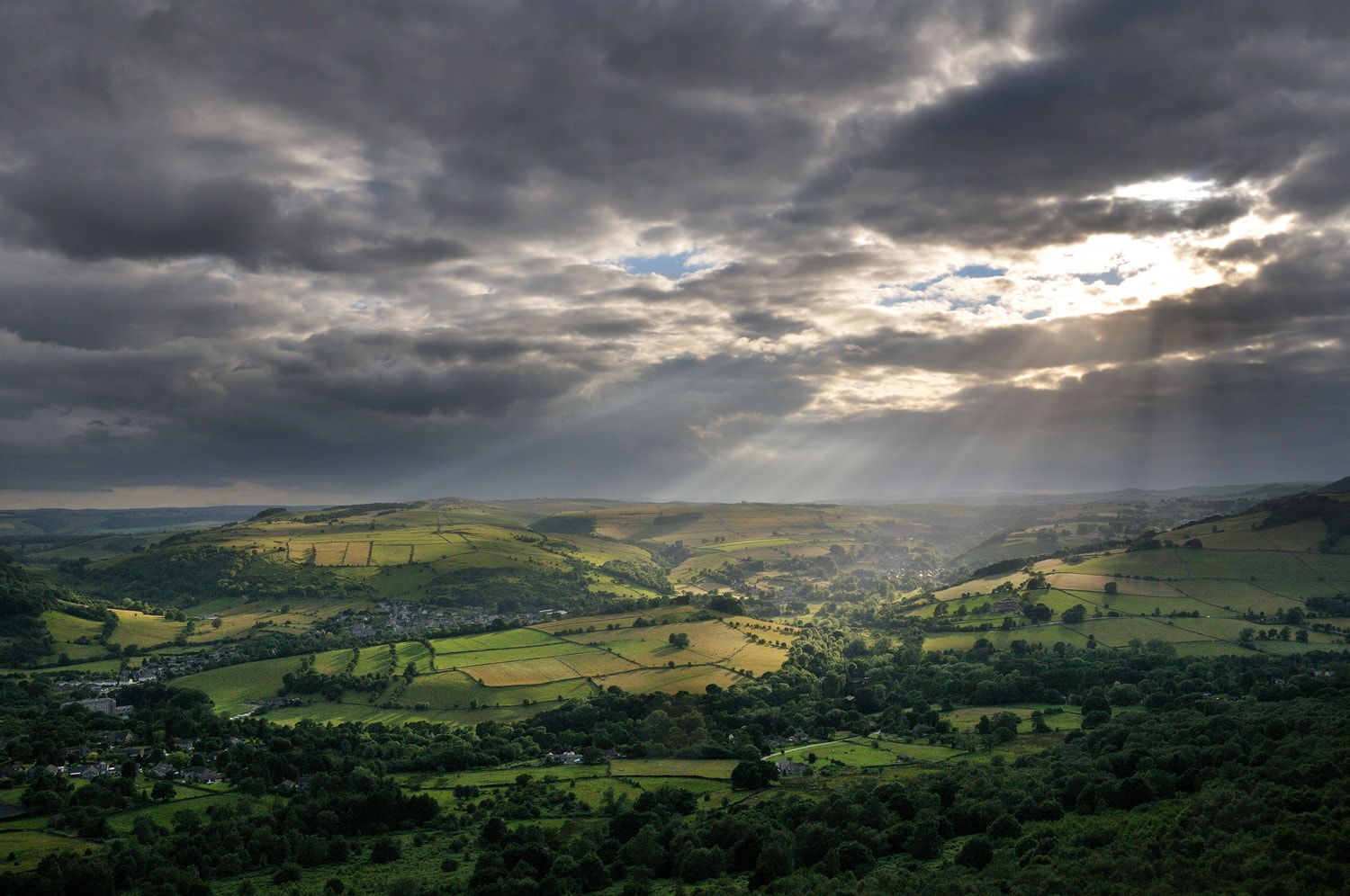South West Peak Landscape Partnership celebrates successes
This is an archived press release
Thursday 30 June 2022
The South West Peak Landscape Partnership has reached the end of its five year programme and has celebrated its successes with staff, volunteers, and partner organisations at an event in Warslow, on 25 June.
The 5-year South West Peak Landscape Partnership (SWPLP) started in January 2017, supported by National Lottery players through a £2.4m grant from The National Lottery Heritage Fund.
The Landscape Partnership was set up to restore, protect, and improve the landscape of the South West Peak – an area covering 354 square kilometres, including the Goyt Valley and the Roaches – by working with local communities to build stronger connections with the landscape and each other, by enhancing ecosystem services, and supporting sustainable farming.

Photo: A well dressing of the South West Peak logo was made by staff and volunteers at the celebration event on 25 June.
Robyn Llewellyn, Director, England, Midlands & East at The National Lottery Heritage Fund said: "We are delighted to have supported The South West Peak Landscape Partnership on this five year conservation programme. It’s vital that local communities are involved in natural heritage projects in order to combat our declining natural heritage, and it’s thanks to National Lottery players that we are able to fund important initiatives like this."
David Chapman, Peak District National Park Authority member and chair of the Landscape Partnership Board of 14 partners, said: “The Partnership has produced a phenomenal programme of projects – from apprenticeships to wildlife discoveries – achieving an amazing amount of work in a relatively short space of time, and keeping going despite the pandemic.
"This work will have long-lasting benefits for the environment, for wildlife and for the communities who live and work in and visit the South West Peak. Many thanks and congratulations are due to all involved and in particular to the volunteers who have given years of enthusiasm and effort, without which we could not have succeeded."
In total, since 2017, volunteers have given 31,700 hours to the many different projects and activities in the South West Peak.
Karen Shelley-Jones, scheme manager of the Landscape Partnership, said: "It has been a tremendous and wide-ranging scheme and we’ve made incredible progress for people and for wildlife that I hope the area will benefit from for many years to come.
In her speech at the celebration event, Karen said: “We’ve captured fifty oral histories from farmers covering the significant changes in farming since the 1940s and published a book based on these. We’ve worked with farmers to improve habitat for lapwing, curlew and snipe, plant hedges and trees, collect and spread wildflower seed to restore sixty hectares of hay meadows, to repair walls, restore barns and produce a barns trail and leaflet.
"We’ve introduced more than five and a half thousand native crayfish back into local waterways. We’ve helped many community projects – from digitising archives to repairing village halls. And, connected six thousand people to nature through our 'wildplay' and schools activities. Long may those connections continue."
The SWPLP 18 projects covered topics from recording historic buildings to encouraging children to connect with nature, from working with farmers and land managers to improve habitats for wildlife to supporting youngsters to develop careers working in the countryside, from introducing endangered crayfish to local waterways to discovering new species of fungi - with many more activities taking place.
To read more about the South West Peak Landscape Partnership and all it has achieved, including case studies and final reports to download, please visit www.southwestpeak.co.uk.
Just some of the headline successes from the South West Peak Landscape Partnership
- More than 5,500 native crayfish re-introduced.
- Habitats improved for wading birds: lapwing, curlew, snipe. 60 hectares of hay meadow restored.
- 137 fungi species found including 32 internationally important species, 25 of which had not been recorded in the UK before, and 4 species potentially new to science.
- A chapel building restored and four traditional field barns repaired.
- A barns trail created.
- 46 heritage assets adopted.
- 75 community grants awarded.
- The Land That Made Us book published giving voice to the South West Peak farmers who been part of changes in farming life since the 1940s onwards.



